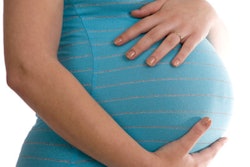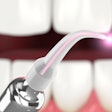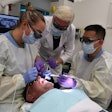
Although a number of studies have investigated the link between treating periodontal disease and pregnancy outcomes, the jury is still out on whether scaling and root planing (SRP) reduces preterm births and other adverse pregnancy outcomes.
This month's Journal of the American Dental Association features a critical summary of a meta-analysis of 11 randomized controlled trials, including recently published, high-quality studies that found no evidence that SRP during pregnancy prevents preterm birth, low birth weight, spontaneous abortions, or stillbirths (JADA, October 2011, Vol. 142:10, pp. 1192-1193).
— John Newnham, MD
The authors of the meta-analysis (British Medical Journal [BMJ], December 29, 2010) wanted to examine whether treatment of periodontal disease with SRP during pregnancy is associated with a reduction in the preterm birth rate. Their systematic review of randomized controlled trials -- including pregnant women with documented periodontal disease who either received treatment with SRP or no treatment -- used Cochrane Central Register of Controlled Trials, ISI Web of Science, Medline, and reference lists of relevant studies to July 2010.
They looked at 11 trials (with 6,558 women). Five were considered to be of high methodological quality (low risk of bias), while the rest were considered low-quality (high or unclear risk of bias).
Results among low- and high-quality trials were consistently diverse, the BMJ study authors noted. The low-quality trials supported a beneficial effect of treatment, while the high-quality trials provided clear evidence that no such effect exists. As a result, the authors concluded that the treatment of periodontal disease with SRP cannot be considered to be an efficient way of reducing the incidence of preterm birth.
And although women may be advised to have periodical dental examinations during pregnancy and may have treatment for periodontal disease, they should be told that such treatment is unlikely to reduce the risk of preterm birth or low-birth-weight infants, the BMJ study authors added.
In her critical analysis of the BMJ study, Lorena Baccaglini, DDS, PhD, an assistant professor in the department of community dentistry and behavioral science at the University of Florida, Gainesville, agreed with the findings.
"This meta-analysis showed that SRP has no significant effect on the incidence of preterm birth," wrote Dr. Baccaglini, who is also an evidence reviewer for the ADA. "Furthermore, SRP does not appear to have an effect on other adverse pregnancy outcomes, such as low birth weight or spontaneous abortions or stillbirths."
Not so clear-cut
However, Marjorie Jeffcoat, DMD, a professor and dean emeritus at the University of Pennsylvania School of Dental Medicine -- whose research found that pregnant women who have successful nonsurgical periodontal treatment are less likely to have premature babies -- feels that there has not been enough research on this topic to warrant a meta-analysis.
"A meta-analysis is done when there are a bunch of clear, comparable studies, all with different results," she told DrBicuspid.com. "You can't draw conclusions from the studies currently out there on pregnancy outcomes and periodontal disease treatment."
Very few studies have been done on patients who have enough periodontal disease in which it would actually matter to pregnancy outcomes, she added. "We need more original research that looks at pregnant patients with periodontal disease," she said.
Dr. Jeffcoat, who is a periodontist, believes that pregnant women with periodontal disease should be treated. When she sees pregnant patients with severe periodontal disease, she does the following:
- Tells them to rinse with a nonalcoholic mouth rinse two times a day, everyday. (Earlier this year Dr. Jeffcoat presented a study that found that the use of nonalcohol antibacterial mouth rinse containing cetylpyridinium chloride decreases the incidence of preterm births.)
- Cleans their teeth at the end of the first trimester, beginning of the second.
- Sees them every six weeks.
Other experts, however, agree with the conclusions of the BMJ meta-analysis.
John Newnham, MD, a professor of obstetrics at the University of Western Australia who has done research on the topic (Obstetrics and Gynecology, December 2009, Vol. 114:6, pp. 1239-1248), told DrBicuspid.com last year that the link between the two conditions has yet to be proved.
His group's randomized, controlled trial demonstrated that effective treatment of periodontal disease in midpregnancy neither helps nor harms pregnancy.
"We have all been through a period of great excitement that treatment of periodontal disease in pregnancy may prevent preterm birth and other major pregnancy complications," he said. "Unfortunately, not true."
The BMJ meta-analysis provides further confirmation of the findings, Dr. Newnham told DrBicuspid.com.
"Even though treating periodontal disease during pregnancy does not improve outcomes, we now know that women can have treatment while pregnant without fear of obstetric complications," he said. "Unfortunately, treating periodontal disease during pregnancy does not improve outcomes."
Dr. Jeffcoat, however, remains unconvinced.
"The story is not done, although some would like to believe that it is," she said. "It is still evolving."



















